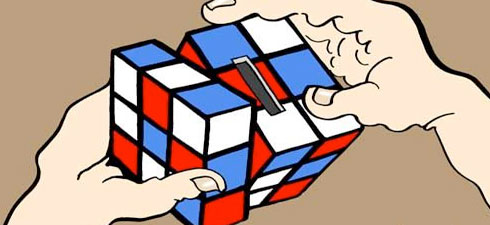"It falls to Serbian citizens to choose the leaders that they want." This is Brussels's response to the question of who would be the best partner in Belgrade after the presidential, parliamentary and local government elections to be held in Serbia on May 6. But, privately, its admitted that they are hoping for a victory for incumbent President Boris Tadić, and for a coalition formed around his Democratic Party - even if for the first time since the democratic transition, the subject of EU membership has not dominated the campaign. Things were very different four years ago.
In 2008, the EU supported Tadić. That was four months after the proclamation of Kosovo's independence. On the eve of the elections, the European Union opened dialogue on liberalisation of the visa regime that led, in 2009, to the abolition of visas for Serbs travelling within the Schengen area. Meanwhile, the Interim Agreement on stabilization and accession took effect. At that time, the EU feared that Serbia could fall back "to a time of macabre nationalism" should the "nationalists" win, which explained its support for the "forces that ensured a European future for Serbia".
The green light recently given to Serbia's candidacy for accession to the EU can also be interpreted as support for Tadić ahead of the May 6 elections. "Tadić has disappointed us a bit. But he remains the best option for us. It is unclear what will happen to the dialogue between Serbs and Kosovars should the Nationalists come to power ", says a senior European official who requested anonymity.
It is very interesting to note that this time, nobody sees Tomislav Nikolić (the leader of the Serbian Progressive Party, on an equal footing with the Democratic Party in parliamentary elections) as a "threat" to the European future of Serbia. What is more troubling is the procrastination of Ivica Dačć, the leader of the Socialist Party, a former aide of Slobodan Milošević, despite proving very cooperative as interior minister during negotiations on the abolition of visas. Nikolić visited Brussels on several occasions to meet Stefan Fule, the European Commissioner for Enlargement. Nikolić has also sent staff there in order to improve his image.
Although his approach was quite successful, the EU is still leaning towards Tadić. However, it is worried less by Nikolić, who used to be the right-hand of Vojislav Šešelj, the nationalist leader charged with crimes against humanity and war crimes by the International Criminal Tribunal for the Former Yugoslavia, who is awaiting trial in The Hague. Nikolić was his deputy in the Radical Party before splitting to found the Serbian Progressive Party. The EU is also less concerned by Dačć, than by Vojislav Koštunica who it helped win the elections in 2000 and oust Milošvić from power. Seen from Brussels, Košunica remains the only true "eurosceptic" in Serbia.
Seen from Belgrade
An empty campaign
While Serbia also suffers the effects of the economic crisis, candidates for the legislative and presidential elections on May 6 are not yet addressing the issue of austerity for the people and are not putting this into perspective, complains the Danas. The daily notes:
They promise everything, nothing but nice things, mountains, airplanes, trucks, by the millions. The reality is totally absent from the campaign, our political class thinks that you cannot win an election by addressing these issues, that would be a disaster! Who will have the courage to say to the voters that we must face seven years of food shortages and that this is no longer a laughing matter?
Was this article useful? If so we are delighted!
It is freely available because we believe that the right to free and independent information is essential for democracy. But this right is not guaranteed forever, and independence comes at a cost. We need your support in order to continue publishing independent, multilingual news for all Europeans.
Discover our subscription offers and their exclusive benefits and become a member of our community now!












